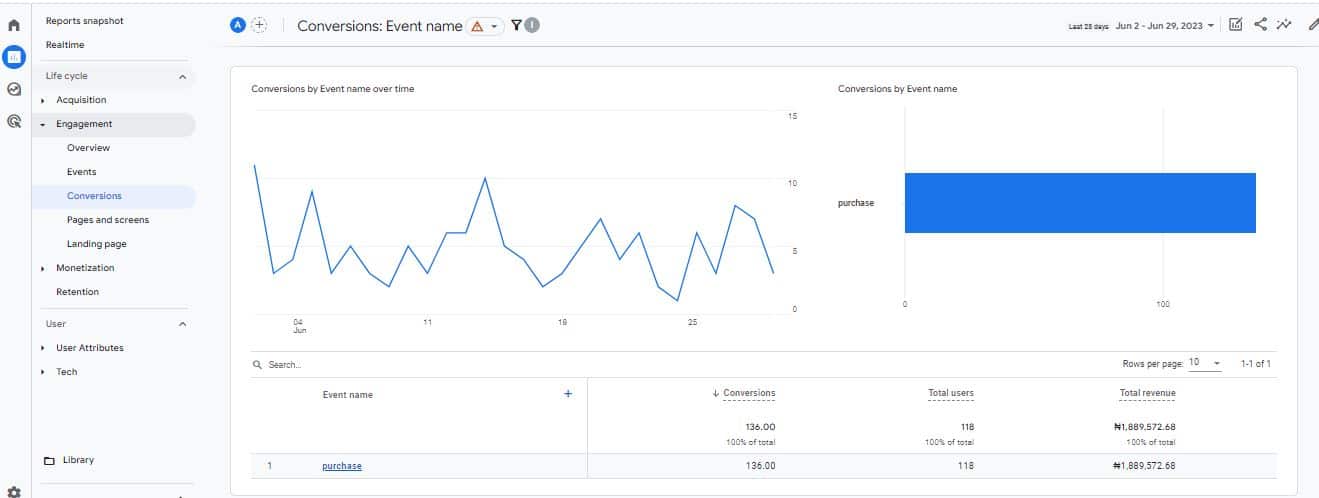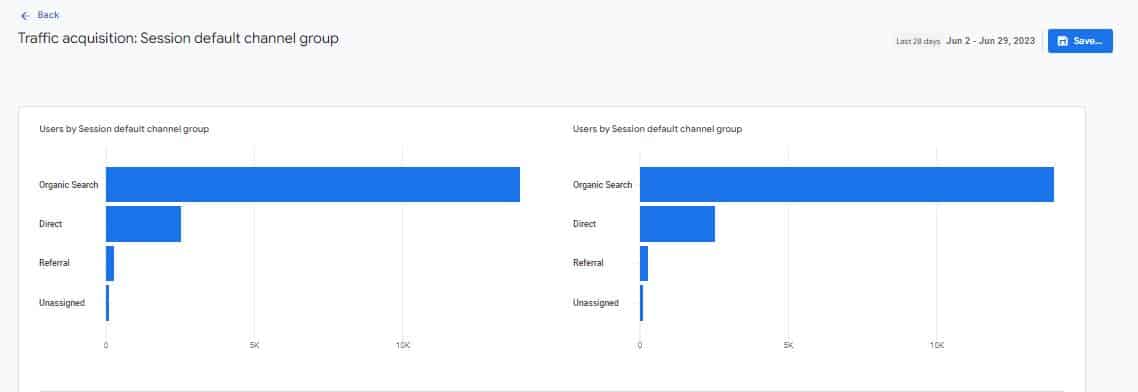BEST 7 MARKETING METRICS YOU SHOULD TRACK
In today’s digital marketing world, data is your best friend. These data can make or break your marketing strategies. Having the right data at your fingertips can help to improve your marketing strategies, and make informed decisions that drive the growth of your business.
It’s advisable and important to carefully select the metrics you want to keep off as they are overwhelming amounts of data available.
What Are Marketing Metrics?
Marketing metrics are simply parameters that can be used to assess the effectiveness of your digital marketing campaigns. Also, it helps you assess and refine your digital marketing plan by providing you with greater insight into how customers respond to your business.
These metrics are measured in relation to your company’s goals. For instance, if you want to increase your company’s brand recognition, you should pay close attention to metrics like reach and the number of unique visitors to the website.
What are those measures you need to employ in evaluating your digital marketing objectives? Here are 6 marketing metrics that you should track as a digital marketer
MARKETING METRICS YOU SHOULD TRACK
1. Your Bounce Rate
When a Nigerian makes use of the slang ‘bounce’ it simply means to ‘get out’. In a similar way, a website’s bounce rate is a marketing metric that shows you the average percentage of visitors who came to your website and left after just seeing one page.
The bounce rate of your website can be both positive and negative. On the other hand, it can also suggest that the visitors arrived at your page, discovered what they were looking for, and then left.
Having a website with a challenging UI (user interface) or UX (user experience) can increase the bounce rate. As much as you can, try so hard to upgrade the construction, appearance, and mobile responsiveness of your website so people will not bounce.
Google Analytics tool can give you insight into your website bounce rate.
2. Your New and Returning Visitors
This can be classified as a search engine optimization metric. Understanding and tracking your visitor’s behaviour enables you to identify the patterns your visitors follow; the information that interests them, how they interact with various pages on your website, how long their sessions lasts, and whether or not they convert to sales at the end of the day.
While the idea of welcoming new guests is great, returning guests are most valuable. The possibility of conversion is directly proportional to the number at which users return to your website, so it is very important to keep track of this statistic.
If you discover that a low percentage of people return to your website, It’s time to modify your inbound marketing plan. To give your visitors useful experience, you can improve in a number of areas such as; search engine optimization, search engine marketing, social media marketing, email marketing, etc.
3. Your Conversion Rate
This can be classified as a search engine optimization and paid advertising metric. Your conversion rate is arguably the most important metric in digital marketing. The percentage of visitors who come on to your website and successfully complete an action. A high conversion rate shows successful web design and marketing. It indicates that people want what you have to offer and can easily obtain it.
Conversion rates differ from company to company. For an eCommerce business, you track purchases and for a service brand, it might be a newsletter registration. This metric is the primary indicator of how successful your marketing initiatives are in achieving your marketing objectives basically, the proportion of visitors conversions on a website.
Calculating a conversion rate is pretty simple. All you do is divide the total number of visitors by the total number of conversions, then multiply that result by 100. Easy peasy!
Google Analytics is an important tool to use in tracking the conversion rate of a product or service based business.

4. Your Click-Through Rate
This metric can also be classified as a paid traffic metric. CTR is the number of clicks your advertisement receives divided by the number of times it is shown. How often your ad links are clicked depends on things like; the call to action, the keywords used, the graphics, etc.
Just a helpful tip, You can utilize clickthrough rate (CTR) to determine how well your keywords, advertising, and free listings are performing.
5. Reach
Tracking marketing metrics like reach can show you the unique visitors to your website depending on your digital marketing objectives. If your business objective is to build brand awareness, then you should use this indicator the most.
6. Your Website Traffic Source
This is an SEO and paid marketing metric. Your website serves as the online resume for your business. It is important to track the sources from which people visit your website because it is one of the first locations where customers come to learn more about the services you provide. Every business should have a web presence.
When you track this, you get insight into where traffic is coming from. Traffic may be from social media, organic, google advertising etc. This would help you make an informed decision.
You can choose to upgrade your SEO approach or your social media marketing strategy depending on which channel has a low-performance rate by tracking the sources of your traffic.

7. Social Media Engagement
This is an important metric. It measures the level of interaction your social media posts are receiving in terms of likes, shares, comments, subscriptions, and retweets. Low engagement might suggest that your content is not resonating with your audience or that you’re not targeting the right demographic.
For instance, you can track your Instagram metrics from the insight. The insight would give you information on the best-performing post. So you can make an informed decision by creating more of it.
Conclusion
There are social media marketing tools like Hootsuite, Buffer, Buzzsumo, that your business can use to measure its digital marketing campaign. Use these tools to determine if you are on the right track to your digital marketing campaign strategy.
Digital marketing analytics tools like Google Analytics, SemRush, and HubSpot analytics can also be used to check your website performance.
Do not waste any more time, go ahead and start running these checks. If you need any help whatsoever, DULPHDIGITAL is at your beck and call.








